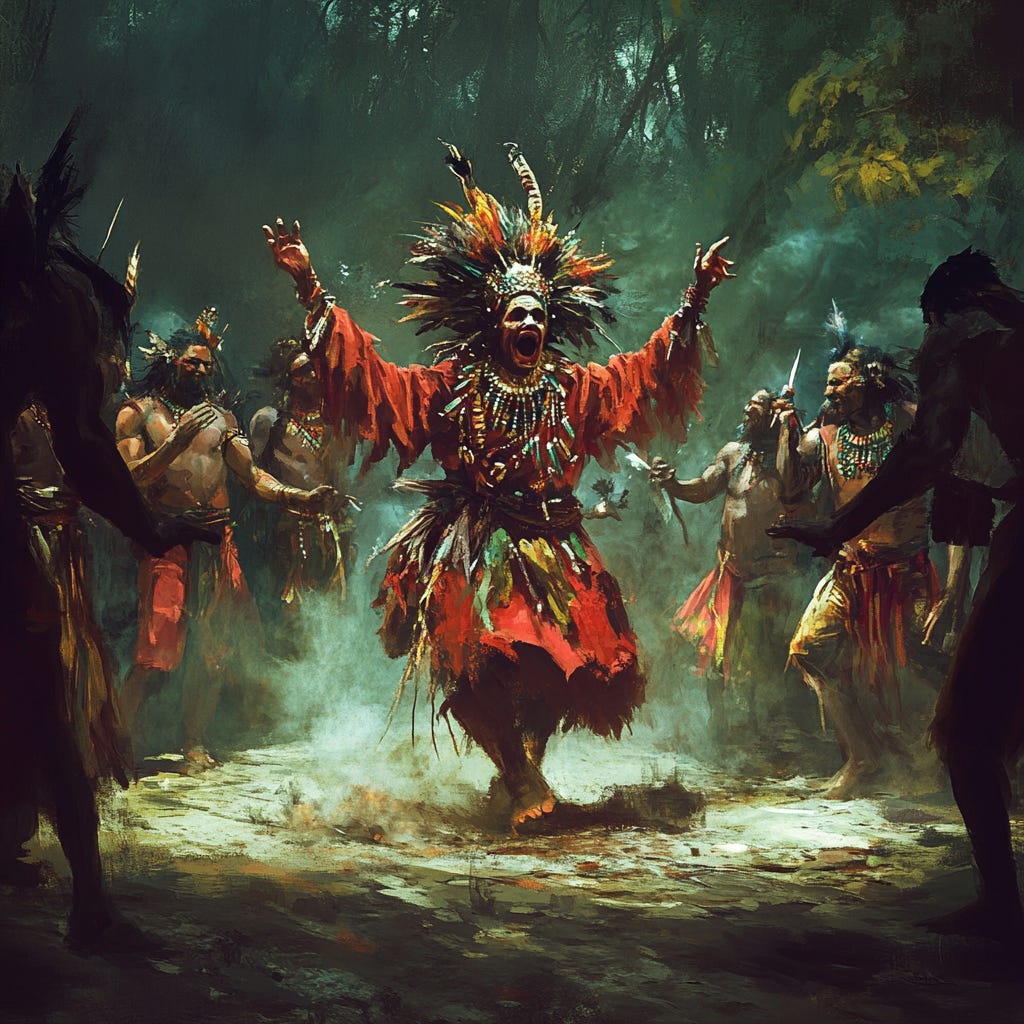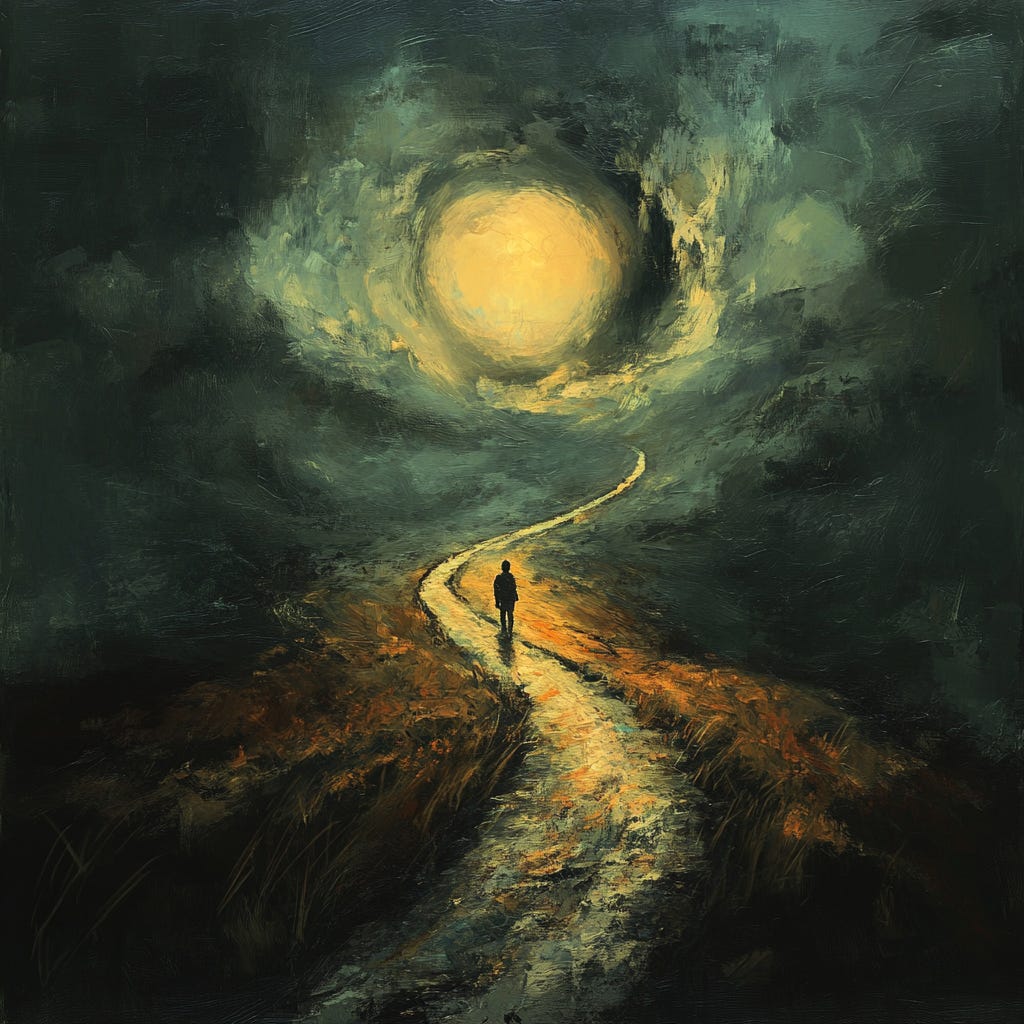I’m thirty-four, single, and hear about it all the time. My parents would probably rather I’d settle down with someone nice and tend to the human business of making a family, and raising them before I croak. You’ve heard this story before because it’s the model of living developed at the genesis of the nuclear family, the latest iteration of our ancestor’s pressing desire to conform. For most of human history, to be happy was to fit in. I, on the other hand, relish in my black sheep status.
Fitting in has evolutionary logic. After all, people aren’t cats; we’re intensely interrelational. The sheer pleasure of connection can be found in conversation, sex, humor, and tiny moments of profundity communing with nature. We crave it. We also need it. Rutger Bregman points out that our competitive advantage as a species isn’t sheer intellect or cognitive ability - we measure pretty closely with our primate cousins on these measures - but our mirror neurons that let us copy what others are doing. Cooperation and mimicry allowed us to form bands and co-ordinate complex tasks, like building, hunting and language.
The drawback is that fitting in also creates stasis. Fitting in is about diminishing one’s sense of individuation. Individuation is important. The universe conspired to wire us all differently, and from our unique little vantage springs your particular perspective and your unique thoughts. The magic of diversity is fundamental to innovation and progress. In the aggregate, we need your tiny contribution to the tapestry because progress is neither predictable nor guaranteed. We don’t know what the next important idea is, and so we need as many of them - especially the batshit and barmy - as possible. Ditto for trying different lifestyles.
Humans genuinely need to see others out on a limb, plumbing the outer limits of what a life can be to understand how far we can collectively go. We need, as Nietzsche put it, a super[wo]man. Even with our propensity for fitting in, human beings have always had a soft spot for the eccentrics - witness the grand burials of ancient human skeletons with Dwarfism, or mystical figures like shamans and soothsayers that were always just a little extra.
Such eccentric lives push the contours of our predilections and worldview, reflecting it back to the world with new ideas and sentimentalities. In other words, we individuate in order to create greater connection. We see in those crazy others, as Emerson put it, our own alienated genius. Maybe I’m single for a reason, a tiny little fish lost in an entire ocean on the cusp of some great wave of change. I don’t think I’m even a black sheep anymore.
What the Avocados Said
Really, millennials are just the latest generation - not even, actually - to be subjected to handwringing by their parents. It might soothe you to know that Aristotle also whined about ‘the youth’ in the 4th Century BC, complaining that “they think they know everything, and are always quite sure about it.” OK, boomer. Much as Horace (1st Century BC) agitated that “the beardless youth…squander [their] money”, columnist Bernard Salt prophesised our hopelessness with a now-legendary article about avocados on toast.
Salt copped a lot, but he was on to something. I love avocado on toast. I can’t deny who I am. It’s also true newer generations aren’t interested in following old recipes through life. I don’t even know if such a thing can exist anymore. I think it’s got something to do with divorce rates.
Boomers, despite being the wealthiest generation ever (for now - we’re going to gobble up some generous inheritances shortly), still failed at love with alarming regularity. I remember the Church prophesying the apocalypse as divorce rates crept higher and higher throughout the 1990s, as boomers had second and third attempts at love. We’re in the process of filtering out the deluge of ‘I hate my wife’ jokes spawned by these repeat mistakes (among other things the boomers enjoyed, like the ENTIRE WINE INDUSTRY). Remember, marriage wasn’t supposed to be for love.
We have our own vices of course, like helicopter parenting and the increasingly avoidant tendencies of ‘the youth’. Divorce, though, ain’t one of them. Millennials have the lowest divorce rate in recorded divorce history. We also get married later, putting it off until after we’ve gone through the bare-minimum tertiary degrees the workplace now requires, and the underwhelming wage increases we’ve received relative to cost of living. As it stands, 44% of my generation were married in 2019, compared with 53% of gen X’ers, 61% of boomers and 81% of the silent generation at the same age.
There are confounding variables; millennials also have much higher incidents of de facto relationships, couples that opt out of marriage for their own reasons. But this is the entire point of liberalism, as most enlightenment thinkers generally agreed two centuries ago; to count on the thick scrub of human diversity to eventually find new, better ways of living.
Sometimes that choice might be to get married, recognising the importance of making commitments to something higher than ourselves, like a relationship. Marriage also has a lot of baggage, representing an institution that isn’t large enough to hold the many ways of being that now exist in modern relationships. The point is not which choice, but from where we make that choice from. My greatest hope, should I one day tie the knot, is that doing it reflects the wild freedom inside. That’s all.
Or, in the words of a family institute research executive, “those who do say “I do” have a stronger investment in the institution. If you’re getting married now, most people are really committed to the idea of marriage and what it means.” Amen, sister.
Our Blessing, Our Curse
I don’t bring up divorce rates to beat my parent’s generation like dusty carpets - those days are (mostly) behind me. I’m better than that. It’s to illustrate one of the many paradoxes of progress; as our choice-options grow, so does the angst that comes with analysis paralysis. Commentators have pointed to various life ‘vacuums’ that young people must fill in themselves, where before it was the church, state or community. Love and relationships are one such example. Careers are another.
Before finding my way in tech, I toiled among other things as a shelf-stacker, recruiter, salesperson, waiter, bartender, manager and student. When I contrast my meandering path with my grandfather’s, I can’t help but notice we both struggled but in different ways. He more or less committed himself to his business to make money for his family, which was the brief society handed to him as a man and father. If he had other options, he didn’t tell me about them. If there were unrealised possibilities this pathway eschewed, he didn’t complain about them. He just did his job and showed up the way society expected him to.
By contrast, my millennial ass went to therapy a few years ago to talk about the anxiety my career path was causing me. Yes it was a bit pathetic, but it’s because I can also see clearer than my grandfather the many paths not taken. My information feed is stacked to the brim with success stories and the crack-cocaine of helplessly comparing myself to strangers online. I’m hardly alone in this; modern identity is so multi-faceted, so caked in possibility on professional, sexual, personal and spiritual vectors that the miracle might actually be that anyone at all has a genuine, authentic connection with who they are.
It’s the blessing and curse of progress. The pervasive, modern sense of anxiety may actually be a sign that liberalism has done its job, that while we want the freedom to choose freely, we’ve also lost some of the guidewires that nudged us toward well-lit pathways, if not greater growth. The final contract with the paradox of possibility, the reality that we must make mutually exclusive choices, can only be with ourselves. It is what liberalism is supposed to facilitate; the emergence of truer connections with who we really, actually are beyond the confines of whatever society says it ought to be. We trust that what is truly, actually good for the goose is truly, actually good for the gander.
When we’re able to see the other paths being trod, and know in our bones why we’re on the one we’re on, we grow a little closer to ourselves, a little calmer and more secure. People can smell that self-assurance a mile away. We feel it pulsating from the other, and we want it - crave it, in the digital world - so badly for ourselves.
It’s intoxicating. It’s magnetic. It’s hot. And it’s never been harder to obtain.


















Share this post